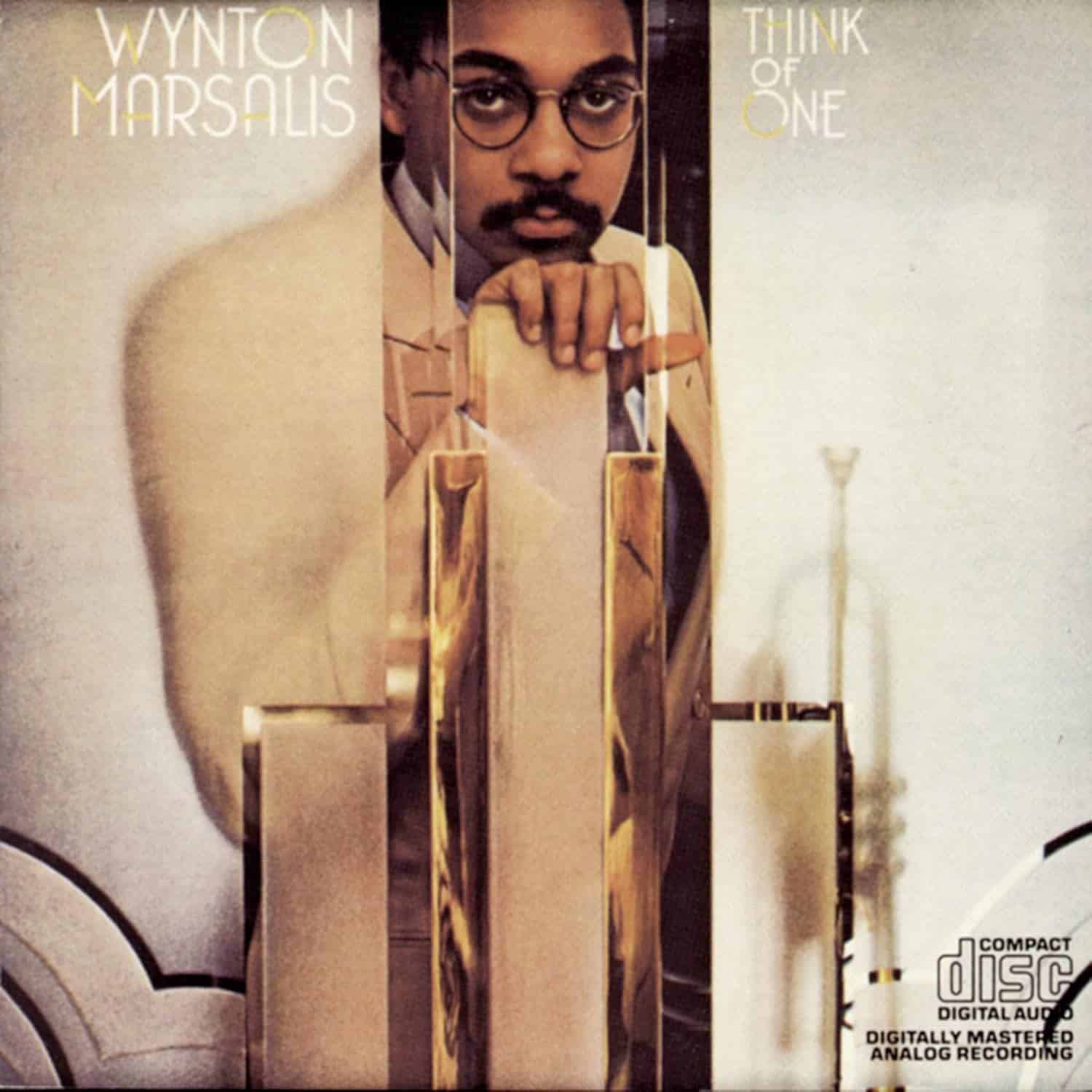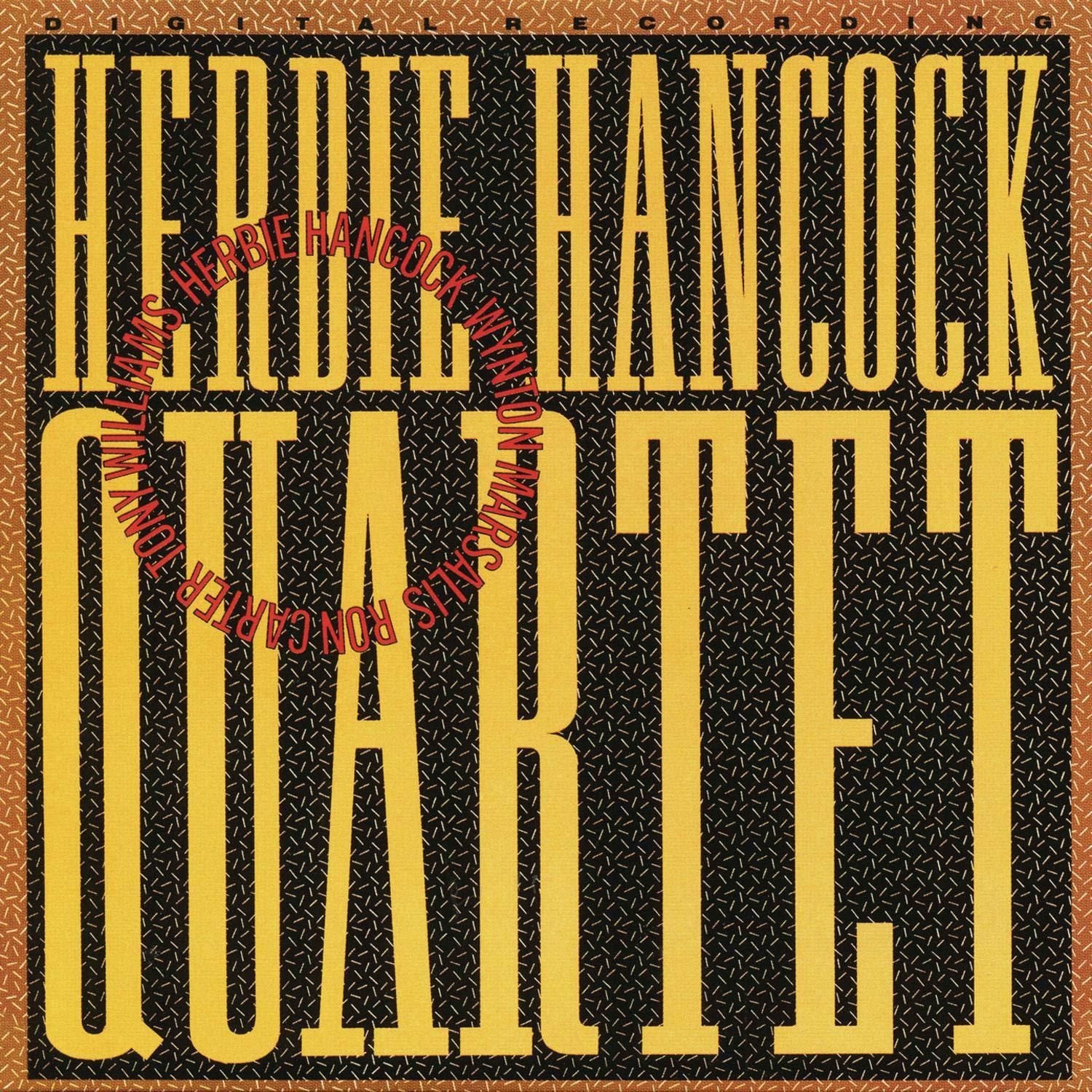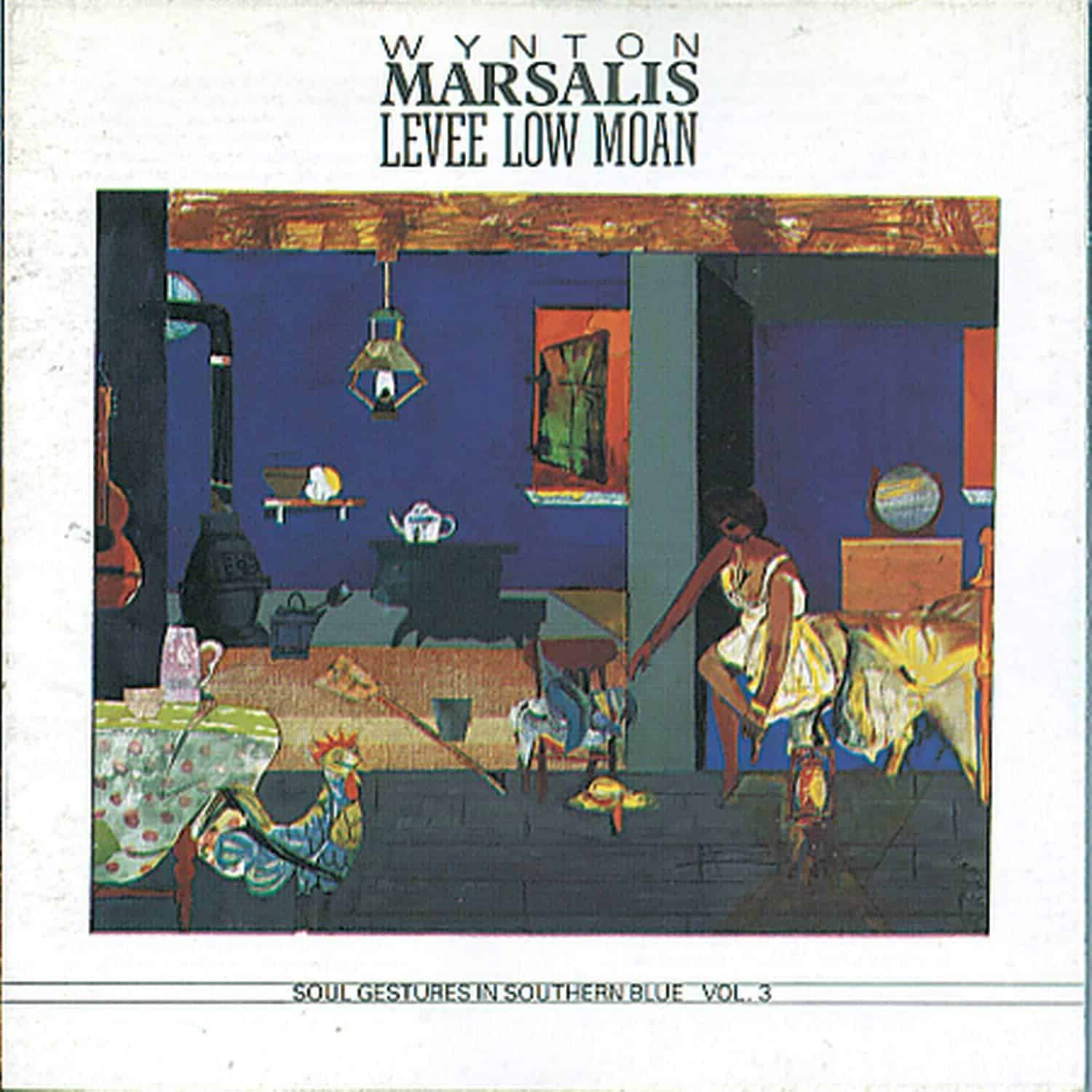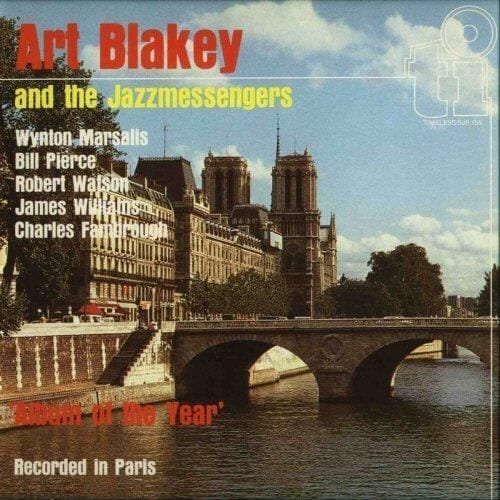8. Think of One [1983]

Why It’s Very Good: Marsalis’s Columbia Records debut as a leader in 1982 used brother Branford but otherwise was distinguished by support from the old Miles Davis rhythm section (Herbie Hancock, Ron Carter, Tony Williams). This sophomore release was the coming-out party for his superb young working band, with Jeff Watts’s drums and Kenny Kirkland’s piano being genuine stars of many tracks. Branford’s tenor solo on Wynton’s “Knozz-Moe King” is a fine Wayne Shorter imitation, but the accompaniment from the rhythm section is the real highlight. Immediately afterward, Kirkland and the trio take off with total originality. No offense to the horns, but WOW.
Marsalis’ puckish arrangement of the Thelonious Monk title track is ingenious, flush in singing dynamics and elasticity, and his original tune “Later” is similarly playful. Kirkland’s “Fuschia” is also a slice of original art. Beyond that, we get a glimpse of Marsalis’s formal excellence with standard tunes on both “My Ideal” and Ellington’s “Melancholia”. Any notion that this kid’s emergence as a jazz leader was a fluke was obviated by Think of One.
Killer Tracks: “Knozz-Moe King” and “Think of One”
Notable Collaborators: Pianist Kenny Kirkland, drummer Jeff “Tain” Watts
Wynton-ian Moment: On Kirkland’s “Fuschia”, Marsalis begins his solo with a motif from the melody, does not turn up the theatrics too quickly, leaves room for creative accompaniment by the composer, and then plays something shapely with a great climax, all with economy—like a mature artist whose ego was not in the way.
Listen: Spotify
7. Herbie Hancock Quartet [1982]

Why It’s Very, Very Good: Before his debut as a leader, Marsalis toured with the famed Hancock/Ron Carter/Tony Williams rhythm section (just years after those three toured with Freddie Hubbard and Wayne Shorter as “VSOP”), both with and without brother Branford on sax. The quintet was recorded, but this was the official release, as a quartet, recorded in Japan in 1981 and released a year later. And there are no mincing words: this trio is always remarkable, exploratory, and elite, but Marsalis doesn’t ever blink, playing with brio and expressive brilliance at every turn. This is the Wynton who sounded like a modern, liquidy Clifford Brown but playing in the dizzy give-and-take style of Miles Davis’s 1960s band. Two tunes each by Monk, Hancock, Carter, and Williams, plus “I Fall in Love Too Easily”.
Killer Tracks: Carter’s “A Quick Sketch”, which really lets the band get loose and free, and a fast “Well, You Needn’t”.
Notable Collaborators: Herbie Hancock, Ron Carter, Tony Williams
Wynton-ian Moment: Hancock’s earlier recordings of “The Eye of the Hurricane” let trumpeter Freddie Hubbard go nuts. Marsalis goes his own way on the tune, buzzing and sliding, jabbering and dancing like a kid in a sandbox. Less muscular than Freddie, but close to as good.
Listen: Spotify
6. Levee Low Moan [1991]

Why It’s Excellent: As his compositional ambition (and affection for Ellington) grew, Marsalis started thinking more conceptually and in longer arcs. This was the third of three albums referred to (very pretentiously, yes) as “Soul Gestures in Southern Blue”—each an attempt to steer away from the abstraction of post-bop modern and back toward blues and swing. The band was in transition: Herlin Riley was bringing more New Orleans and less hard bop to the drum kit, Todd Williams brought a more neo-swing vibe on tenor sax, Roberts was still hanging in on piano, and a second saxophone expanded the ensemble to six pieces.
Critical reception to the music was poor, but bafflingly so in retrospect. This is elegant music that walks a hip and slippery bridge from Wynton’s modernist small-group music of the 1980s to his future. If it seemed like some kind of backward movement at the time, well, the dancing groove I hear in “Jig’s Jig” just sounds good, and Wessel Anderson’s alto solo is rich in harmonic interest—far from retro. On “Superb Starling”, we hear Marsalis the composer start to deal with orchestration in interesting ways.
Killer Tracks: “Jig’s Jig” and “In the House of Williams”
Notable Collaborators: Drummer Herlin Riley, alto saxophonist Wessel Anderson
Wynton-ian Moment: On “So This Is Jazz, Huh?”, a ballad set over a skittering New Orleans groove, Marsalis takes a sonically restrained solo that becomes a clinic in using a repeated single note to brilliant effect. Several times, he takes a single note and just repeats it with subtle rhythmic and tonal variations as if his horn was a drum. Which, at its best, it often is.
Listen: Spotify

5. Album of the Year [1981] (Art Blakey and the Jazz Messengers)
Why It’s Excellent: Before he had truly settled on a jazz career, Marsalis came to New York from New Orleans, drawn by education at Julliard but highjacked by the chance to attend the real graduate school: a spot in Art Blakey’s Jazz Messengers. Marsalis arrived in the band at a wonderful time and helped to catalyze a notable renaissance for Blakey, overlapping with alto saxophonist (and tunesmith) Bobby Watson, tenor saxophonist Bill Pierce, bassist Charles Fambrough, and pianist James Williams. The band is fleet and fine, and we get to hear the 19-year-old as a technically brilliant trumpet athlete with a quicksilver tone, brimming with ideas. Happily, the rest of the band is just as marvelous, including Blakey in mature glory.
Killer Tracks: “In Case You Missed It”, “The Soulful Mr. Timmons”
Notable Collaborators: Alto saxophonist Bobby Watson, drummer Art Blakey
Wynton-ian Moment: On Wayne Shorter’s “Witch Hunt”, Watson and Pierce take mature, bracing solos, then Marsalis comes along third and plays a solo that is twice as memorable and inventive as its predecessors. He was 19.
Listen: Spotify
- Popular Songs: The Best of Wynton Marsalis
- Wynton Marsalis: Swinging into the 21st
- Willie Nelson and Wynton Marsalis featuring Norah Jones: Here We ...
- Wynton Marsalis and Willie Nelson: Live from Jazz at Lincoln Center ...
- Wynton Marsalis: Standards and Ballads
- Wynton Marsalis: The Spiritual Side of Wynton Marsalis - PopMatters
- Wynton Marsalis’ 'Blood on the Fields', Still Genius ...
- Wynton Marsalis: He and She


![Call for Papers: All Things Reconsidered [MUSIC] May-August 2024](https://www.popmatters.com/wp-content/uploads/2024/04/all-things-reconsidered-call-music-may-2024-720x380.jpg)



